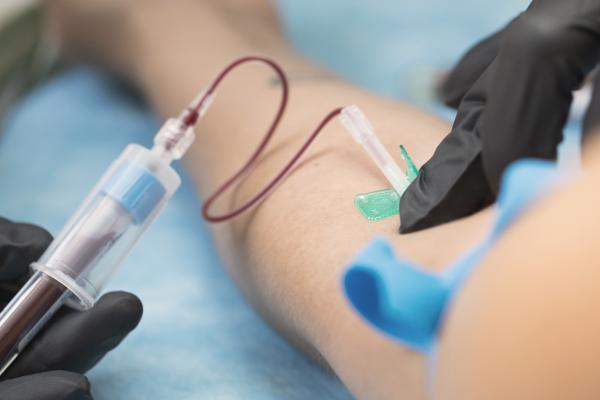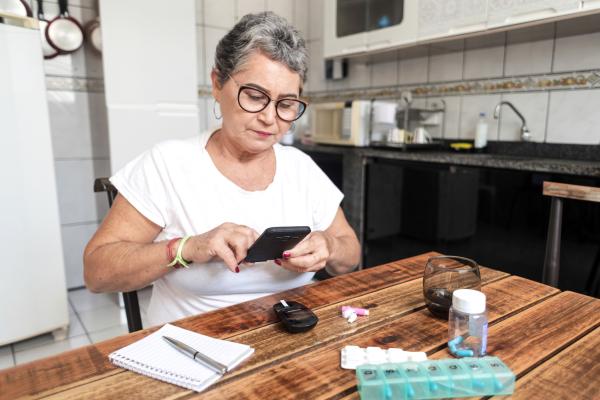
Congratulations to VCHRI COVID-19 Research Fund recipients, doing their part to fight the pandemic.
The Vancouver Coastal Health Research Institute, along with the VGH & UBC Hospital Foundation, is providing funding for innovative research projects aimed at addressing the evolving health care needs and challenges related to the COVID-19 pandemic. This funding will help accelerate research efforts to proactively respond to the virus in BC through prevention, detection, treatment and management.
The COVID-19 Research Fund recipients are:
- Dr. Chris Carlsten, professor and head of the UBC Division of Respiratory Medicine and scientific director of the Legacy for Airway Health
- Dr. Daniel Kim, emergency physician at VGH and clinical assistant professor with the UBC Department of Emergency Medicine
- Dr. James Lan, transplant nephrologist at VGH and assistant professor with the UBC Department of Pathology and Laboratory Medicine
- Dr. Agnes Lee, director of the Hematology Research Program at VCHRI, medical director of the Thrombosis Program at VCH and professor with the UBC Department of Medicine
- Dr. Allison Mah, clinical assistant professor with the UBC Department of Medicine
- Dr. Renelle Myers, thoracic interventional respirologist at VGH and clinical assistant professor with the UBC Department of Medicine
- Dr. Jacqueline Saw, program director of the Interventional Cardiology Fellowship Program at VGH and clinical professor with the UBC Faculty of Medicine
- Dr. Andrew Shih, hematopathologist at VGH, medical director and regional medical leader of Transfusion Medicine at VCH and clinical assistant professor in the UBC Department of Pathology and Laboratory Medicine
- Dr. Isabella Tai, gastroenterologist at VGH and UBC Hospital and assistant professor with the UBC Department of Medicine
- Dr. Teresa Tsang, director of Echo Lab at VGH and UBC Hospital and professor with the UBC Department of Medicine
Optimizing lung health and quality of life for COVID-19 survivors

Study: Respiratory Outcomes Following COVID-19 Infection in British Columbia: A Prospective Patient Registry
With over 2,000 confirmed cases of COVID-19 in BC, and numbers continuing to tick upward, there is a need plan ahead and identify optimal care for patients after they have recovered from a COVID-19 infection. It will also be vital to engage with and further study COVID survivors to learn more about the impact of the virus, and determine and address key research questions.
This research project will establish a database for the COVID-19 respiratory registry that will be used to determine risk factors associated with poor respiratory outcomes, inform clinical care, build research capacity and support future studies, and develop provincial expertise in post-COVID-19 respiratory care. The research will focus on the long-term respiratory health of COVID survivors and any associated complications they experience post-hospitalization.
Dr. Carlsten is working closely with VGH Head of Respirology, Dr. Jay Johnston and St. Paul's Hospital Head of Respirology, Dr. Chris Ryerson, to develop the project platform for interdisciplinary collaboration with a broad range of other health care areas and disciplines, as well as with research teams at the national and international levels.
Diagnosing and managing COVID from the emergency department

Study: Canadian Emergency Department COVID-19 Lung Point of Care Ultrasound Study
For many COVID-19 patients, the emergency department is their first point of contact for care. Once they arrive, patients are assessed by emergency physicians and nurses who perform diagnostic tests, including bloodwork and chest imaging.
Several small studies suggest that pulmonary point-of-care ultrasound (POCUS)—the practise of using a portable ultrasound device to diagnose conditions of the lungs wherever a patient is being treated—may reveal several characteristic findings, but the diagnostic accuracy of these findings remains unknown. The aim of this project is to determine if pulmonary POCUS can be used as a rapid, reproducible, non-invasive diagnostic test to diagnose COVID-19 and aid in its management.
Dr. Kim is specifically interested in discovering the pulmonary POCUS findings most predictive of the diagnosis of COVID-19 and determining a diagnostic threshold, or scoring system, based on those findings that can predict the diagnosis of COVID-19. Dr. Kim will also be examining whether specific pulmonary POCUS findings are predictive of disease severity and prognosis.
Determining immune response to COVID-19 in transplant patients

Study: Comprehensive Immune Profiling of Solid Organ Transplant Recipients with COVID-19
Transplantation is a life-saving therapy for patients experiencing organ failure. At present there are over 800 patients on the waitlist for an organ in BC, with an additional 5,200 solid organ transplant recipients being monitored by care providers across the province.
These patients represent a vulnerable population who may be particularly susceptible to COVID-19 due to their immunosuppressed state and burden of other health conditions. It is also unknown whether transplant patients can mount an appropriate immune response and develop protective immunity to COVID-19 in the same way as the general population.
This research project seeks to learn more about the risk, presentation and outcomes of COVID-19 in transplant patients. Using cutting-edge immune assessment technologies, Dr. Lan will study the development and evolution of immune responses in transplant patients with COVID-19. This novel approach could provide new insights into the immunity of the virus and have a major impact on the diagnosis, monitoring and treatment of COVID-19.
Determining risk of thromboembolic events in COVID positive patients

Study: COVID-19 Associated Venous and Arterial Thromboembolism (CAVEAT)
Thromboembolic events are a leading cause of death worldwide and unusually high rates of thrombosis, such as stroke, pulmonary embolism and microvascular thrombosis, have been reported in patients with COVID-19. However, the incidence of thrombosis remains uncertain because most of the studies on the subject have been small, selective and retrospective.
This research project is designed to determine the incidence and risk factors of arterial and venous thromboembolism in patients with COVID-19 who require hospital admission. Dr. Lee’s research will involve performing a retrospective analysis of hospital records to identify the risk of arterial and venous thromboembolism and collect patient and laboratory characteristics.
This project will provide an environmental scan to inform a provincial study to identify risk factors associated with hypercoagulability, predictors of the clinical course and potentially effective interventions that will reduce the occurrence of thrombotic complications and mortality in patients with COVID-19.
Assessing therapeutics to treat hospitalized COVID-19 patients

Study: A Multi-centre, Adaptive, Randomized, Open-label, Controlled Clinical Trial of the Safety and Efficacy of Investigational Therapeutics for the Treatment of COVID-19 in Hospitalized patients (CATCO)
Currently there are no proven, effective therapies to treat COVID-19. But researchers around the world are working collaboratively to investigate and compare therapeutic agents that may combat the virus. As the Canadian arm of the World Health Organization’s SOLIDARITY trial, CATCO is designed to evaluate potential therapeutics for the treatment of hospitalized patients with COVID-19.
By utilizing adaptive design, allowing for early stoppage of therapeutics which fail to show benefit and being able to introduce new candidate treatments as they become available, this research project aims to identify a treatment for COVID-19 that improves mortality compared to standard of care.
Dr. Mah highlights that while the overall goal is to discover a successful treatment and contribute to the international advancement of knowledge, this project will also provide local patients access to potentially beneficial therapeutics and help build up research capacity and infrastructure in BC to respond to further challenges and future questions posed by the pandemic.
Using breath samples to detect COVID-19 and its trajectory

Study: Detection of COVID-19 By Volatile Organic Compounds in Exhaled Breath (VOCs) – A Pilot Study
To effectively control the spread of COVID-19, a simple, non-invasive method that can detect infection even when a patient’s respiratory symptoms are mild or if they are asymptomatic is needed. Previous research has shown that volatile organic compounds (VOCs) in exhaled breath can be used to detect respiratory infections, such as respiratory viruses, mycobacteria and other bacterial pathogens. The use of VOCs to detect COVID-19 may be a very promising approach to assist with diagnosis.
This research project seeks to collect breath samples from COVID-19 positive patients at the time of diagnosis, during and after recovery using the patient as their own control to identify VOCs specific to COVID-19. Additionally, the project aims to determine a patient’s disease trajectory in terms of recovery versus progression to respiratory or multi-organ failure.
Dr. Myers research will involve using gas chromatography-mass spectrometry to measure VOCs in exhaled breath. The VOC profiles from the symptomatic phase and recovery phase will be compared to determine if there are unique VOCs associated with COVID-19 infection. Dr. Myers hypothesis is that comparison of VOC profiles between those who recover and those who progressed will provide information on potential prognostic features.
Protecting the heart health of COVID-19 patients

Study: Cardiac COVID-19 (Cardiac-COVID) Myocardial Injury Prospective Registry
SARS-CoV-2, the strain of coronavirus that causes COVID-19, has been shown to commonly affect the cardiovascular system of COVID-19 patients in the form of myocardial injury, heart failure and cardiac arrhythmias. Myocardial injury in particular has been reported in some acute hospitalized patients with COVID-19, and is associated with higher mortality.
This research study seeks to create a multi-centre prospective registry to collect key demographics, imaging and outcome data for COVID-19 myocardial injury patients who have undergone cardiac computed tomography angiography (CCTA) or invasive coronary angiography to assess coronary anatomy. It will also compare the utility of CCTA versus coronary angiography in COVID-19 patients for assessing the cause of myocardial injury. Additionally, the study will assess the feasibility of CCTA as first-line imaging in COVID-19 myocardial injury patients, documenting the proportion of cases where coronary angiography can be avoided.
As part of this research, Dr. Saw’s study will also evaluate the in-hospital and six-month outcome of COVID-19 patients with myocardial injury in an effort to better understand the burden of disease in BC.
Testing plasma transfusions from recovered COVID-19 patients to aid those still hospitalized

Study: A Randomized Open-Label Trial of CONvalescent Plasma for Hospitalized Adults With Acute COVID-19 Respiratory Illness (CONCOR-1)
Every day, public health officials across Canada report a growing number of people that have fully recovered from COVID-19. These recovered individuals now possess neutralizing antibodies that could be used to increase understanding of COVID-19 and help prevent future fatalities. Recent smaller studies suggest benefit with COVID-19 convalescent plasma (CCP) collected from donors that had contracted and recovered from COVID-19, building on previous evidence that convalescent plasma could provide benefit in other respiratory viruses, such as SARS and MERS.
This research project aims to compare standard of care versus the addition of a transfusion of CCP in treating COVID-19 positive patients. Dr. Shih will examine if the use of CCP to treat these patients early in the course of their care could reduce the risk of intubation and improve the rate of survival in adults who are admitted to hospital with COVID-19 respiratory illness.
For this study, patients will receive a transfusion of ABO-compatible CCP that has been collected by Canadian Blood Services/Hema-Quebec from donors who have a confirmed prior diagnosis of COVID-19 and have appropriate SARS-CoV-2 antibody and neutralizing antibody titres.
Testing a combination treatment to block COVID-19 from entering and infecting cells

Study: Assess the Efficacy of Combination Treatment with ACE2-R Blocker and TMPRSS2
The global scale and high infection rate of the COVID-19 pandemic has intensified the need to find safe and effective treatments to combat the virus. Research has identified potential therapeutic targets for further testing that could block the entry of SARS-CoV-2 into human cells and reduce infection rates.
This research project will involve testing a dual combination therapy comprised of an ACE2 receptor blocker and a TMPRSS2 inhibitor to determine their potential in reducing the symptoms many COVID-19 positive patients experience.
Dr. Tai hypothesizes that the combination therapy will have better efficacy than a single therapy in reducing the severity of COVID-19 infections and preventing the virus from entering and infecting cells. This could lead to better, faster recovery rates and fewer hospital and Intensive Care Unit admissions related to COVID-19.
Detecting COVID-19 and predicting patient's clinical course

Study: Risk Stratification of Patients Presenting with COVID Symptoms Using Heart-Lung Ultrasound: A VCH Initiative Built for Frontline Workers
Data from pandemic hotspots have suggested that point-of-care ultrasound (POCUS) can detect up to one-third more cases of COVID-19 than some other diagnostic tests.
This research project aims to use a small hand-held POCUS device to rapidly assess the lungs and heart of patients presenting with COVID-19 symptoms for evidence of infection that may be apparent even prior to the results of nasal swabs. This research will determine if such application improves risk stratification of patients with COVID-19 symptoms, allowing for a more accurate prediction of who will need ICU care and ventilator support, and which patients will recover quickly. The project also models the risk of these patients by integrating measurements of heart and lung function using an approach based on artificial intelligence developed in conjunction with colleagues from UBC Engineering Department, Dr. Purang Abolmaesumi and Dr. Robert Rohling.
Additionally, Dr. Tsang, in collaboration with frontline colleagues, will establish a network partnership involving Lower Mainland hospitals with a centralized POCUS imaging infrastructure and harmonized protocols for improving COVID-19 diagnosis and risk stratification.
The COVID-19 Research Fund awards are made possible with the generous support of the VGH & UBC Hospital Foundation and the Transplant Research Foundation of BC in partnership with VCHRI.


